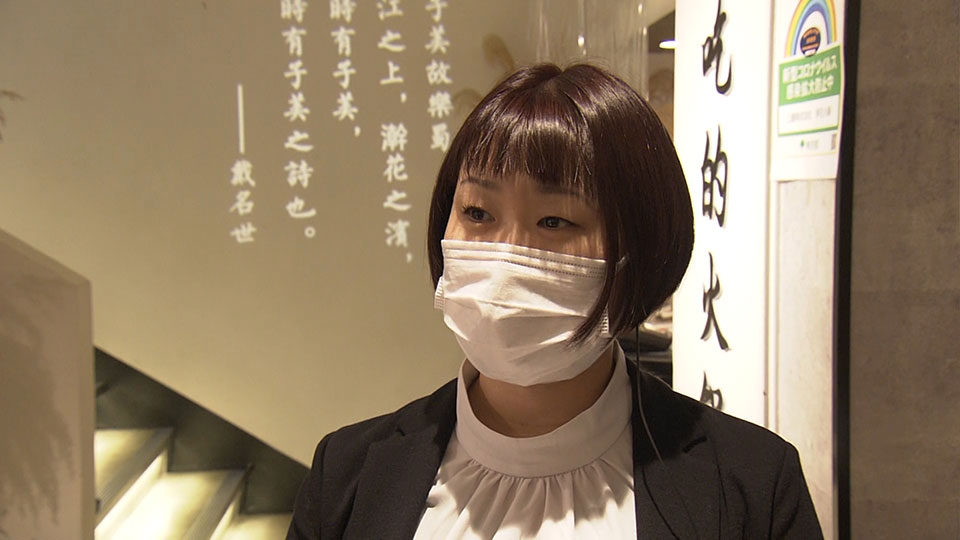Around 1,300 people turn up each day to get tested for COVID-19 at the Kabukicho Center in Tokyo’s Shinjuku Ward. The facility, run by the Kinoshita Group housing and medical services operator, opened at the end of December.
The process is simple: you step into a booth, spit into a testing kit, and wait for the results, which you get by email the next day.
The center is located just blocks from the Kabukicho nightlife district, which was the site of several early outbreaks in Japan, and it’s proving popular among local residents and businesses.
Among its customers are the staff members of the nearby Kanka Chinese Hot Pot restaurant. The virus is a source of constant anxiety for them, as business has almost completely dried up and their relatives in China worry about their safety.
Iwakami Ei, the manager of the restaurant, hopes private testing will help ease some of these concerns, and has arranged for every staff member to be tested.
“If we’re always worried that we might get infected, we can’t provide service at 100%,” she says.

But while these private centers have eased the pressure on government-run centers, some officials have expressed concerns about the quality of service. And since private clinics are not obligated to inform the government of positive results, there is a fear that infection numbers are being underreported.
Inagawa Taro, who runs the Kinoshita center in Shinjuku, says the center sends detailed emails to people who have tested positive, which include instructions on notifying public health centers and medical institutions of the result. He also argues that test results should not be taken as definitive proof of infection anyway.
Kobayashi Keiichiro, Research Director at the Tokyo Foundation for Policy Research and a member of the government’s coronavirus advisory panel, agrees with this assessment, saying that a person who tests negative could still be carrying the virus and that a PCR test is merely a snapshot. But despite these issues, he says private clinics are a godsend for a country that has seen the pandemic take its healthcare system to the verge of collapse.
“If a lot of people take the tests, we can find asymptomatic cases in Tokyo,” he says. “If the testing centers can find carriers and swiftly connect them to medical institutions, it should be possible to prevent secondary and tertiary infections in the city.”
And recent steps by the government indicate it shares this view. On January 15, the health ministry proposed a legal revision to promote cooperation between private PCR testing centers and medical institutions. Some municipalities have already started providing subsidies for private PCR tests.
Back at the Kanka Hot Pot Restaurant, Iwakami has some good news: everybody has tested negative.
“I’m relieved,” she says, “because this means we may be able to stay open.”
As Japan grapples with soaring infection numbers, any concerns about the private testing centers are likely to fade away. Their service might not be perfect, but they offer people one thing that is in short supply these days: peace of mind.

